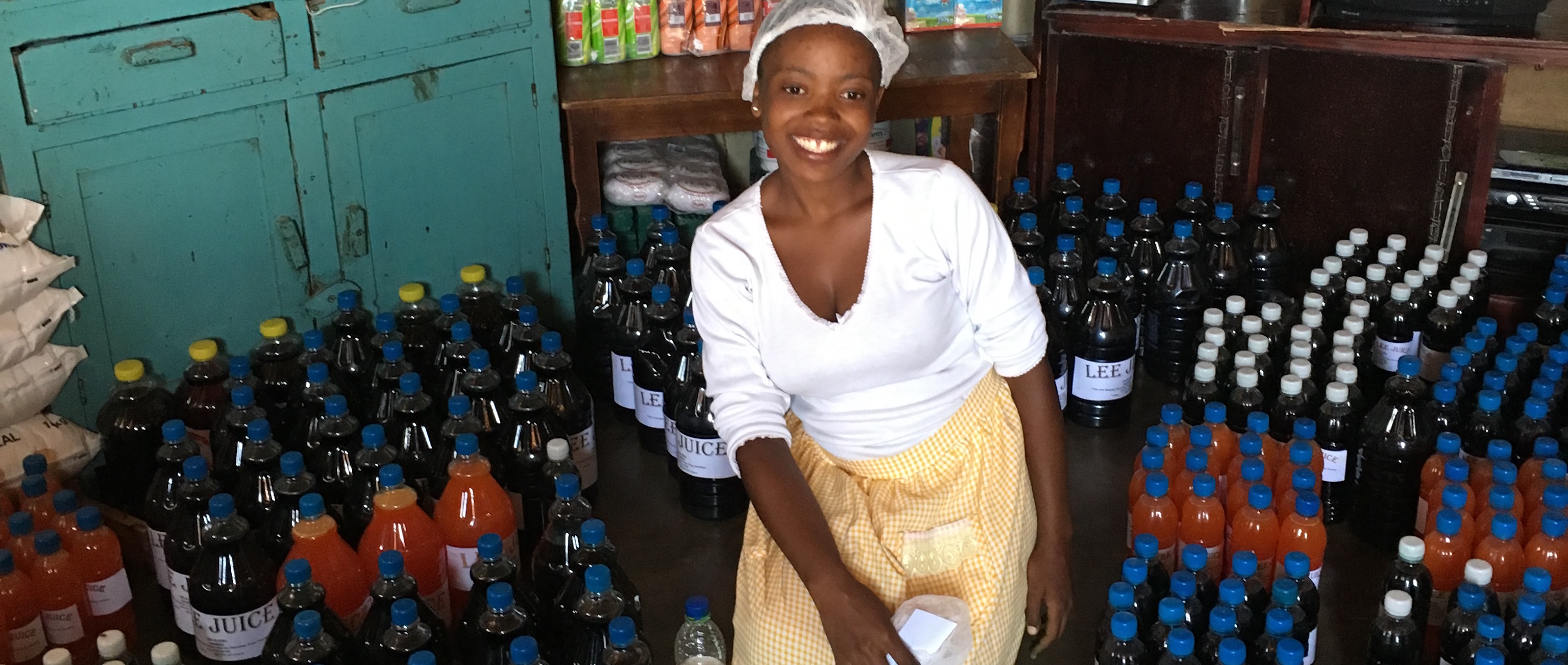Field Visit: Camfed Succeeds Through Community Solidarity
Raymond Guthrie and I are in Zimbabwe visiting Camfed, one of our early Skoll Award winners (class of 2005), to learn more about their work within rural communities to support the girl-child.
In this country, Camfed works in 24 of the poorest, most rural districts, where there is no cell phone service and no electricity grid. Here the majority of residents live in traditional thatched-roof huts and make their living by farming maize, the country’s staple crop.
During our time with the Camfed team, we visited Shurugwi district in the Midlands province, a five-hour drive from the capital, where chromite and gold mining are prevalent. There, we had a chance to see the following first-hand:
We met members of the Community Development Committee (CDC), comprised of individuals from various government ministries and other community stakeholders. One Camfed staff person in each district acts as the secretariat for the CDC; everyone else volunteers their time to select girls for the bursary/scholarship program, disburse funds, and manage community initiatives. The amount of transparency, accountability, ownership, and commitment by CDC members at the local level was impressive.
At Takunda Secondary School (70 km from the district center, or two hours on a bumpy dirt road), we were treated to a warm welcome by students—singing, dancing, and speeches. Then we spent time with the Mother and Father Support Groups for the school—women and men who volunteer their time to address food insecurity within their local schools.
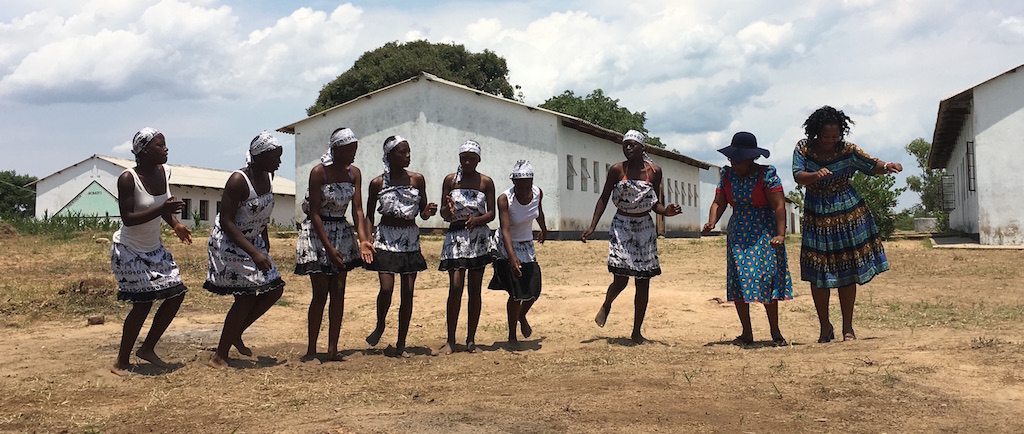
Takunda Secondary School students perform a traditional Shona dance to welcome us.
Many of the mothers that we met no longer had children in the schools but saw this as an important community need: ensuring that every child had at least two meals each week. The mothers proudly showed us their various projects: planting a field of maize and overseeing a small garden for greens and groundnuts, tending goats and poultry on campus, cooking meals twice a week for all the students in the primary and secondary schools, and making crafts to sell for additional income.
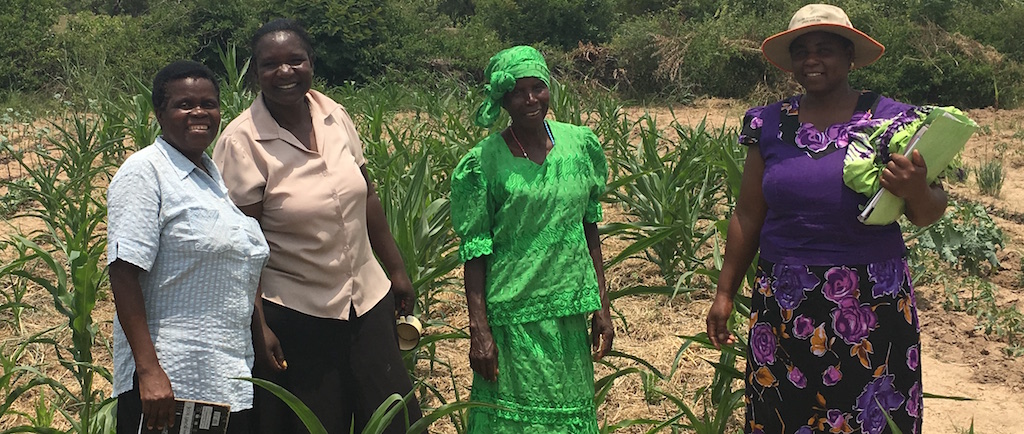
Dedicated members of the Mother Support Group in one of their fields, hoping for more rain.
The fathers helped out the mothers by building fences, farming, and so on. Both the Mother and Father Support Groups are critical elements in ensuring rural food security. Rather than provide one-time humanitarian aid in the form of a food donation, Camfed provides small grants to these groups to start income-generating initiatives, and builds up the skills of rural women to provide ongoing support for local students.
We were lucky to have six members of CAMA, the Camfed alumni association, join us for our entire trip to Shurugwi, including Sinikiwe Makove and Patricia Mangoma—Camfed Zimbabwe’s senior leadership team and founding members of CAMA—as well as core trainers and Learner Guides. Even Camfed Zimbabwe’s National Director Faith Nkala and Camfed Regional Executive Director Angeline Murimirwa are proud CAMA members—women who have benefited from the organization’s programs are now part of the leadership of that organization. This is something we don’t often see, and is a testament to the success of Camfed’s work. The CAMA Network was initiated by the first large cohort of Camfed graduates in Zimbabwe that recognized the challenging transition for girls moving from secondary school into secure livelihoods. Like the CDCs, the CAMA Network is a movement that is almost entirely run and supported by volunteer members, with light support from the national office.
We met Lindiwe, a Learner Guide in Shurugwi, who has started a successful juice company in her rural village using a $500 loan from Kiva. She is now employing other CAMA members in her community, supporting her family, and providing local philanthropy to other Camfed students—all at the age of 21. Given her ambitions and drive, she will do much more in the coming years!
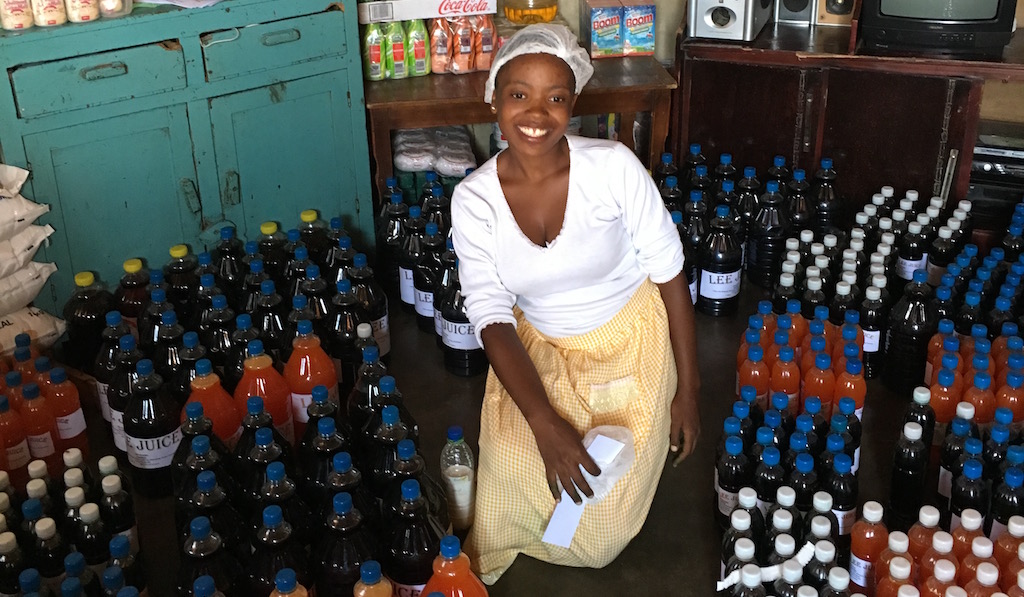
Lindiwe in her shop.
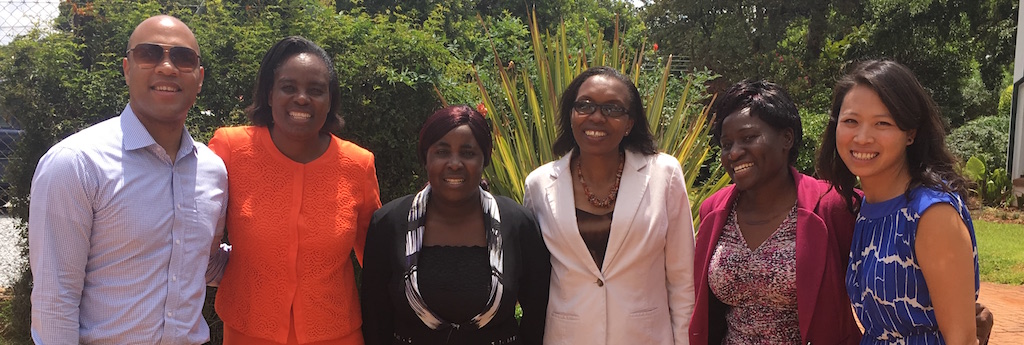
With members of Camfed Zimbabwe’s senior management team. From left to right: Raymond Guthrie (Skoll), Sinikiwe Makove (Women Empowerment Manager), Patricia Mangoma (Programmes), Faith Nkala (National Director), Ruth Mawire (Finance), Cindy Chen (Skoll).
Watch to learn more about the communities engaged by Camfed–and the community members representing Camfed itself:
